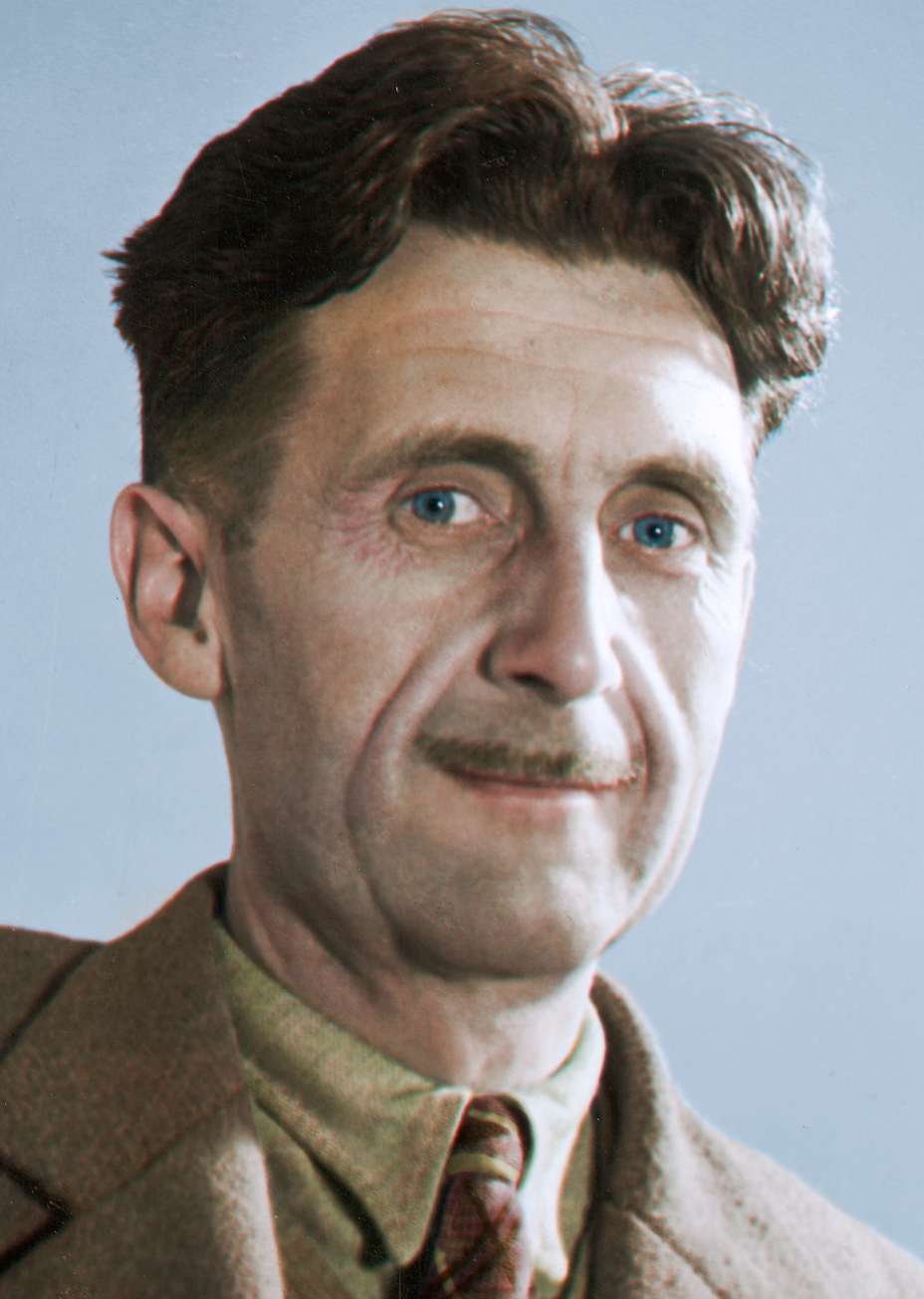On this date in 1903, writer George Orwell (né Eric Arthur Blair) was born in India. Educated at Eton College, Blair joined the Indian Imperial Police in Burma as a young man, later writing a novel, Burmese Days (1934), about it. Bumming around Europe for the experience, Blair wrote an autobiographical account, Down and Out in Paris and London (1933).
Teaching for income, he continued to write novels, including A Clergyman’s Daughter (1935), with its unflattering look at the repression of religion, Keep the Aspidistra Flying (1936), and Coming Up for Air (1939). He also wrote a sympathetic nonfiction account of miners, The Road to Wigan Pier (1937). His book, Homage to Catalonia (1938), was written after he was wounded by Francoists while fighting for Loyalists in the Spanish Civil War.
When Stalinists came after Blair and his anarchist friends, his views on communism changed. While he supported a mild socialism, his masterpiece, Animal Farm (1945), skewered Stalinism: “All animals are equal but some animals are more equal than others.” Religion was satirized by the character “Moses,” a bird, who was a “spy and a tale-bearer,” who talked up “Sugarcandy Mountain, to which all animals went when they died.” Blair did commentary for the BBC during World War II.
His second masterpiece, the cautionary tale Nineteen Eighty-Four (1949), unforgettably put “Newspeak” and “Big Brother” into the political lexicon and conjured up a terrifying image of totalitarianism. His views of religion became increasingly skeptical. In 1968 the four-volume Collected Essays, Journalism and Letters of George Orwell was published. He married Eileen O’Shaughnessy in 1936. She died in 1945 during a hysterectomy. He married Sonia Brownell the year before he died at 46 of tuberculosis. (D. 1950)
PHOTO: Orwell c. 1940


